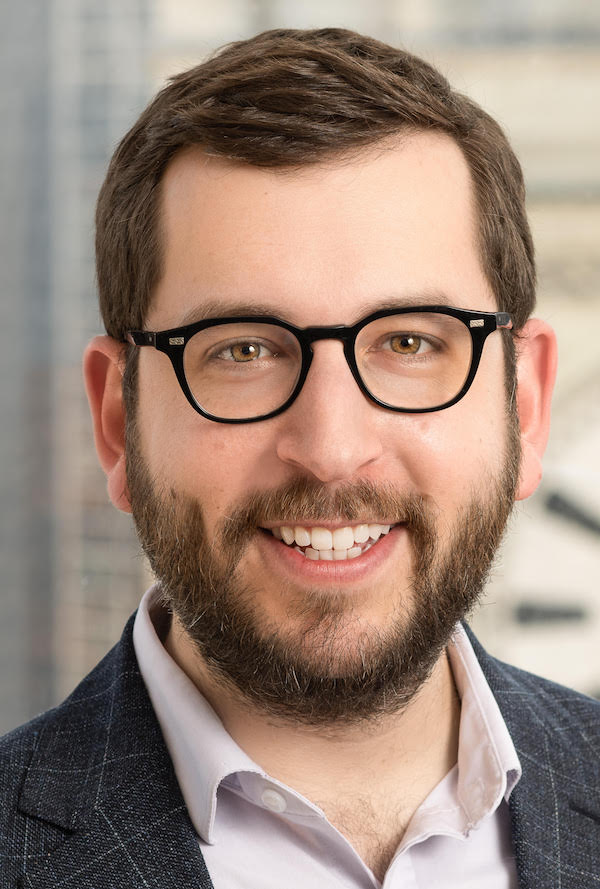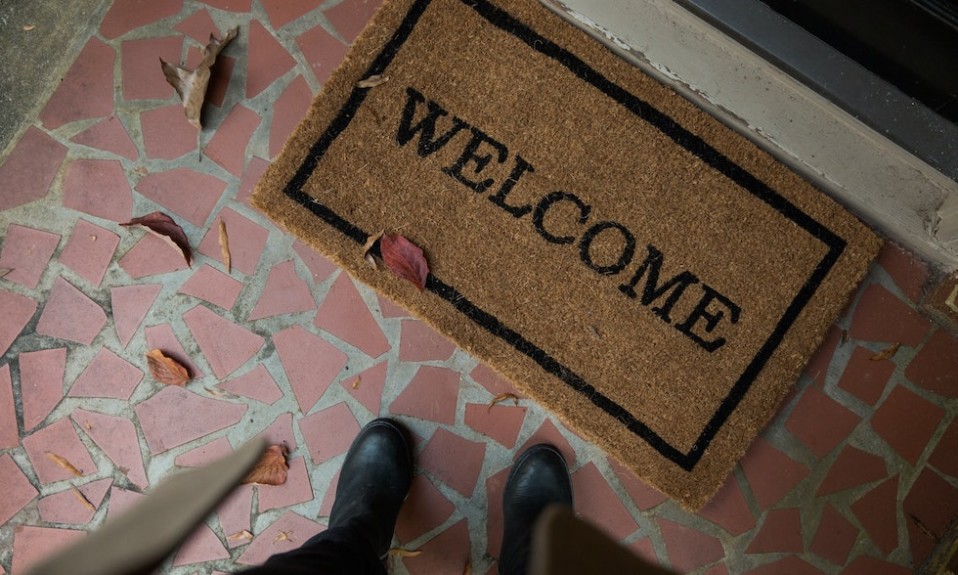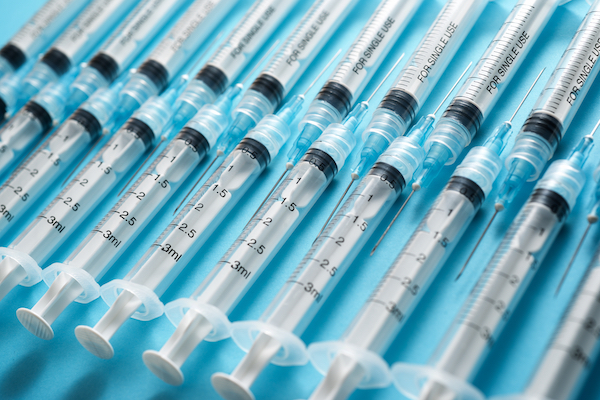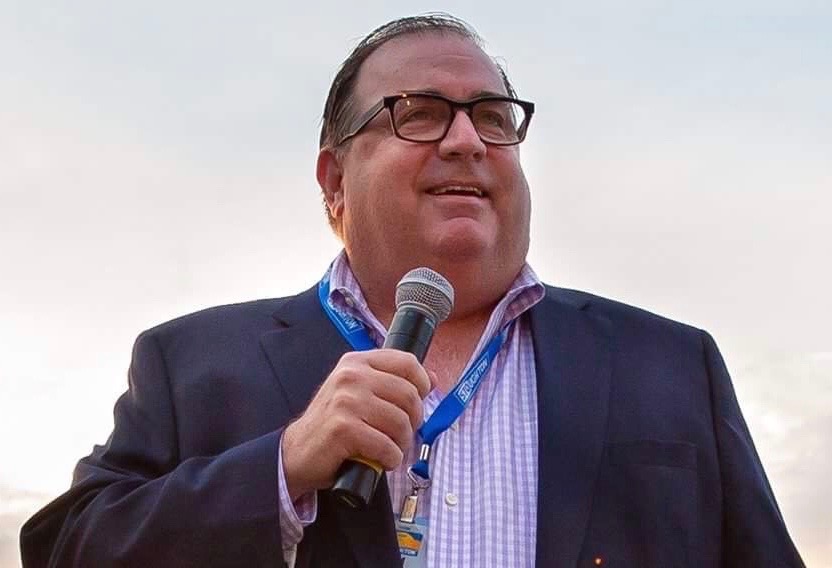Chicago-based Front Door Health is aiming to open a new front in addiction care with a unique model centered on house calls
By Jason Langendorf
There’s an oft-cited statistic regarding addiction: In the United States, only about 1 in 10 people with a substance use disorder (SUD) receive the treatment they need. But what isn’t talked about as often—and what certainly has yet to be solved—is why treatment isn’t working for so many of those who do get help.

That shortfall in treatment outcomes was foremost on the minds of Jonathan Adelstein and the other members of the Front Door Health (FDH) brain trust when the Chicago-based addiction care service was still in the ideation stages.
“We all met through our experiences working for addiction treatment centers at various levels of care,” says Adelstein, MD, chief medical officer and co-founder of Front Door Health. “And we were all frustrated because of how bad they are. Addiction treatment in general is broken. It is certainly effective at some things, and there are pockets that are really wonderful and helpful, and thank goodness for them. But there are also enormous problems and holes in the system.”
A persistent issue, of course, is access. Closing that colossal gap for the 9 in 10 who need but don’t receive treatment is an important component of Front Door Health’s mission. And it’s what makes the company’s hook so intriguing: in-home addiction treatment. Front Door Health, quite literally, meets people with SUD where they’re at with in-home addiction treatment.
Opening Front Door Health
Launched in April 2020, Front Door Health was designed with the patient in mind. But access is only a piece of the puzzle.
“Substance use disorders are a chronic illness,” Adelstein says. “They last throughout the lifetime. We all know this. Rehab, for instance, is an acute treatment—and sometimes a necessary one. But it’s short-term. What do you do for the rest of the time, right after rehab ends? Sometimes you’re waiting months to get an appointment or they’re spaced out so far that you have whole cycles of relapse and recovery in between those appointments.”
To that end, FDH advertises and strongly encourages the commitment to a comprehensive 12-month program. The company allows for one-month signups in certain cases—and Adelstein and his associates are proud to note that every one of those patients has subsequently signed on for additional treatment.
“I think one of the advantages of our model is that we get to know our clients on a deeper level, because we have a lot of individual contact with them over a long period of time,” says Eric Dean, Front Door Health’s CEO. “And by getting to know them on a deeper level, we’re able to take in information about what they’re telling us and what they want to achieve, and incorporate that into our treatment program. We’re able to use that data to adjust their treatment in real time.”
That program is guided by a multidisciplinary team of professionals who are prepared to address all aspects of a patient’s substance use disorder, through psychiatry, medication-assisted treatment (MAT), individual and family counseling and, in some cases, more. Adelstein says FDH has even facilitated the delivery of a patient’s healthy baby.
There is no category for us. But we want to build one, because we want to enhance access.”
Jonathan Adelstein, chief medical officer of Front Door Health
Delivering treatment to patients’ doorsteps cuts through some of the usual reasons people with SUD fail to seek out or connect with care: stigma, disability, location, transportation and scheduling. But by also offering face-to-face treatment where a patient lives, Adelstein says, Front Door Health is able to help prepare patients for real-life situations precisely where they will regularly face them—at home with family members in potentially triggering settings.
“The neuroscience backs that up—home-field advantage,” Adelstein says. “Yes, you’ve got all the support there and you know the turf. And from a patient satisfaction level, being able to access your treatment team immediately—especially in addiction, where crises happen all the time—when you’re white-knuckling at home. If you call the doctor’s office, and if they respond to you at all, it’s like, ‘Okay, well, we’ve got an appointment in two months.’ How is that helpful?”
Data Is the Driving Force
In addition to using proprietary algorithms and machine learning to help determine the best course of action for a patient at any given point in the program, Front Door Health hopes to use its data findings for another purpose: growth.

For now, Front Door Health is a private-payer-only model, but the goal is to prove the efficacy (and cost savings) of the FDH platform. Dean says the company’s data indicate an enormous return on investment—based on clients’ previous engagement with other treatment-related services, such as inpatient and outpatient therapy—that could be used to incentivize buy-in from insurance providers and federal and state agencies.
“We looked at those treatment events for our clients, before they entered treatment with us,” Dean says. “And then we looked at treatment events when they were in treatment with us, and we saw a 92% reduction in services after they were in the FDH program.”
At the moment, Front Door Health only serves patients located in the Chicago area, but Adelstein, who is licensed in New York and Washington, says the FDH model is “infinitely” scalable. He believes that once patients and providers begin seeing provable results over time, the in-home treatment model can offer a viable alternative to other programs that either aren’t available or aren’t working for a large portion of the people in dire need of effective treatment.
“We’re not trying to say that this is the one right way to do it,” Adelstein says. “There is no category for us. But we want to build one, because we want to enhance access. We want people to be able to get treatment. We don’t want this to be just accessible to a few folks.”
Top photo: Andrew Neel; bottom photo: Adam Nowakowski














